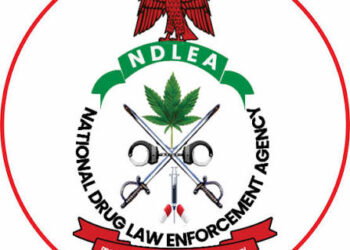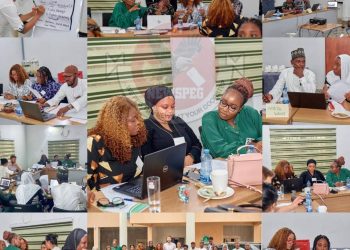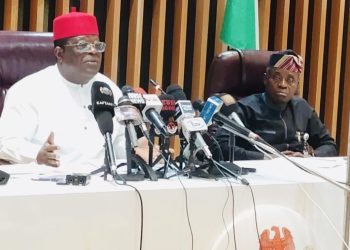By Nkechi Eze
Stakeholders from across Nigeria’s civil society, media, and security institutions have voiced deep concerns over the entrenched secrecy, systemic corruption, gender disparity, and institutional inefficiencies plaguing the country’s defence and security sector. These concerns were raised during a comprehensive two-day capacity-building workshop held at Visa Karena Hotel, Port Harcourt, Rivers State, on the 10th and 11th of June 2025.
Organised by the Civil Society Legislative Advocacy Centre (CISLAC)/Transparency International in Nigeria (TI-Nigeria), in collaboration with the Transparency International Defence and Security Programme, and with the support of the Ministry of Foreign Affairs of the Netherlands, the workshop was conducted under the aegis of a broader initiative titled “Protecting Human Security by Tackling the Vicious Cycle of Corruption.”
The forum, which aimed to increase access to defence and security financial, procurement, gender, and operational information, brought together key players from defence and security agencies, community-based networks, media professionals, and members of the Civil Society Steering Committee from Southern Nigeria. The workshop provided a platform for critical reflection, knowledge exchange, and strategic engagement on the opaque nature of Nigeria’s defence sector and the need for transparency and accountability.
In his opening remarks, Executive Director of CISLAC/TI-Nigeria, Auwal Ibrahim Musa (Rafsanjani), reiterated the urgent need to equip civil society with the tools and knowledge required to constructively engage in issues related to defence financial management, procurement practices, and gender inclusion.
During the workshop, participants were presented with two major papers: “Strengthening Civil Society Engagements towards Enhanced Transparency and Accountability in Defence and Security Financial, Operational, Procurement and Personnel Activities” and “The Imperative of Active Civil Society Information Accessibility for Effective Oversight of the Defence and Security Sector in Nigeria.”
The discussions highlighted several critical challenges impeding effective civil society engagement in the sector. These include restricted access to information, insufficient technical capacity, legal contradictions, and longstanding distrust between civil society actors and security institutions. Other pressing issues identified were excessive secrecy in defence procurement, inflated budget line items, phantom contracts, inter-agency rivalries, weak oversight mechanisms, and entrenched corruption driven by selfish interests and political interference.
The workshop expressed alarm over Nigeria’s poor ranking in the Transparency International Defence Integrity Index, which evaluates political, financial, personnel, operational, and procurement risks in the defence and security sector. It was observed that Nigeria’s financial and procurement systems in this sector are plagued by inflated contracts, poorly informed processes, and a severe lack of transparency in budgeting and expenditures.
Participants further noted that external oversight of the defence sector should be a shared responsibility among the National Assembly, the Office of the Auditor General of the Federation, civil society, and the media. Concerns were also raised about the disproportionate allocation of military personnel to commercial ventures amid an acknowledged shortage of security personnel, which has negatively impacted operational effectiveness.
Another issue highlighted was the opacity and lack of accountability around the use of security votes, especially at the sub-national level, which has become a major impediment to promoting financial responsibility in the security sector. Participants also cited the absence of a centralized databank for monitoring human rights and security violations, along with the failure to adequately assess and address capacity gaps among security personnel.
Despite the existence of various anti-corruption reform efforts by previous administrations, including system audits, payroll synchronization, and budgetary reviews, poor implementation continues to allow corruption to fester. The slow integration of computerized payment systems in defence financial activities further hampers oversight efforts.
A major thematic concern was gender disparity. Women remain severely underrepresented in decision-making roles within the defence and security sector, and this gap is reflected in recruitment, appointment, and promotion practices. Participants emphasized that this exclusion undermines inclusive security operations and hinders efforts toward democratic control of the sector.
Furthermore, the workshop pointed out that engagements by civil society and civilian oversight institutions have largely ignored corruption-prone paramilitary and non-statutory organisations, creating further blind spots in the fight for transparency.
At the end of the two-day deliberations, participants called for stronger civil society understanding of the extent and nuances of information secrecy within the sector, with emphasis on the need to challenge unnecessary classification and bureaucratic red tape. They stressed the need for immediate amendment and harmonization of conflicting legal provisions, such as the Official Secrets Act, Section 97 of the Criminal Code Act, and Section 15(2) of the Procurement Act, which currently undermine the effectiveness of the Freedom of Information Act.
They also urged greater collaboration between civil society and the media to facilitate transparent, evidence-based advocacy. There were calls for the formation of coalitions and networks among civil society groups working at sub-national levels to strengthen advocacy efforts and to build stronger relationships that can elicit reliable information.
Participants encouraged civil society to shift focus beyond capital procurement to areas such as logistics, maintenance, ICT, and small arms procurement, which are often overlooked yet critical to operational efficiency. They called for comprehensive audits of the defence sector’s commercial ventures, and an end to the misuse of military personnel for private purposes.
The need for institutionalized whistleblowing mechanisms, with full whistleblower protection enshrined in legislation, was also a major takeaway. Participants advocated for the domestication of Anti-Corruption and Transparency Units (ACTUs) within the defence sector and the use of technology to facilitate anonymous reporting systems.
The forum emphasized the importance of building mutual trust between civil society and security agencies to foster more open cooperation and improve accountability. They demanded sanctions for the mismanagement of security votes, regular audits at the sub-national level, and effective implementation of procurement and financial laws.
Special attention was given to gender mainstreaming in decision-making structures within the defence and security sector, with the goal of promoting inclusion and social justice. Civil society was also urged to advocate for better working conditions, adequate remuneration, and improved training on human rights for personnel to align operational conduct with global best practices.
Participants committed to intensifying civil society monitoring of high-profile corruption and abuse cases in the security sector, calling for sustained public follow-up to ensure such cases are not ignored or covered up. They also pushed for more assertive civil society action to compel compliance from security agencies with oversight institutions and to guarantee implementation of laws guiding financial and operational activities.
Lastly, the workshop highlighted the need for transparency in recruitment, selection, promotion, and deployment processes within the defence sector, and called for an urgent review of these systems to ensure fairness, professionalism, and the upholding of ethical standards.
The communique was signed by Auwal Ibrahim Musa (Rafsanjani), Executive Director of CISLAC/TI-Nigeria; James Obiaeri Francis of Action for Youth Participation; and Emeruwa Nkiruka Joy of the Centre for Environment and Community Security. They jointly reaffirmed their commitment to sustained civil society advocacy, transparency, and the protection of human security in Nigeria through strategic engagement with the defence and security establishment.















